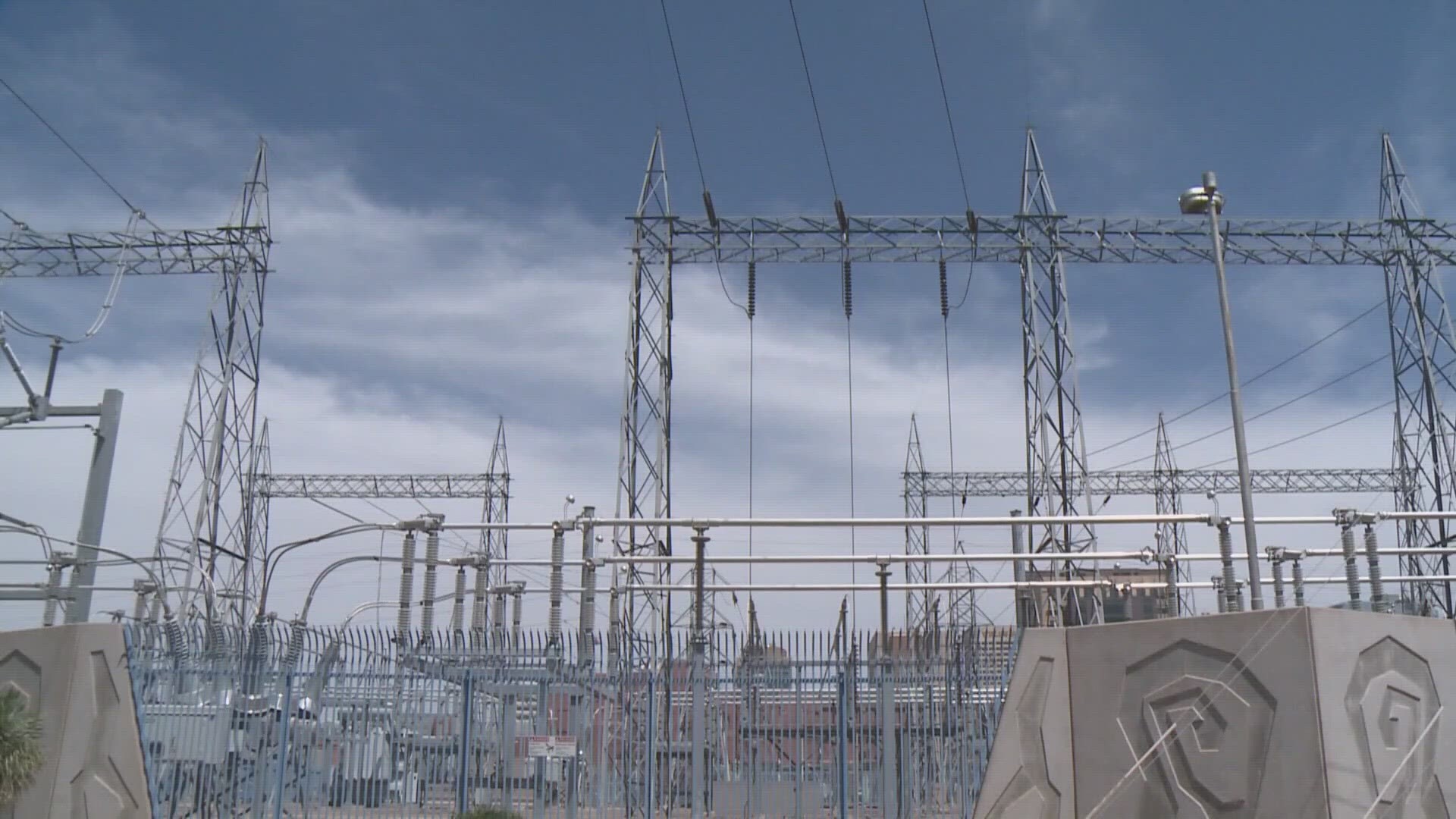PHOENIX — Arizona’s largest utility is planning to construct two new natural gas turbines in central Arizona as it prepares for future energy needs. But it’s how APS received permission for the project that has attracted controversy. The Commission approved an amended environmental certificate for the plan without “any meaningful engagement with stakeholders or the public,” according to Alex Routhier of the environmental nonprofit Western Resource Advocates.
Certificate of Environmental Compatibility expired in 2006
The Arizona Corporation Commission held a vote on the APS request during a November 28th “consent agenda” meeting. Such meetings are typically reserved for non-disputed issues, said Sandy Bahr of the Sierra Club’s Grand Canyon Chapter.
“It was very sneaky. There’s just no other word for it,” Bahr said. “We didn’t know they were reconsidering a 20-year-old docket.”
The four Republican commissioners in attendance (Democrat Anna Tovar was absent) voted 4-0 to approve amending the gas plant expansion with little comment beforehand. The decision amended a 2001 Certificate of Environmental Compatibility for an existing gas plant that originally expired in 2006.
APS: Natural gas fleet adds to diverse energy mix
The plan approved by the commission two decades ago authorized the construction of twelve gas-fired turbines at the Sundance Generation Station near Coolidge with a deadline of 2006. Only ten units were constructed. APS filed a request in October of this year to amend the certificate to build the two remaining units.
“As demand for energy in Arizona grows, our natural gas fleet is an important part of the diverse energy mix,” said APS in a written public statement regarding the expansion on its website. In its application, APS said there are not substantial changes to the original CEC and additional construction is compatible with current environmental regulations.
“The new units will support reliable electrical service in our state and provide much needed energy during the late-afternoon and evening hours, when consumers use it most,” APS states.
No discussion, no public comments allowed
Opponents called the vote an “egregious move that undermines public process and transparency.”
“The decision that the ACC made is premature at best,” Bahr said.
They say the commission should have required APS to file an updated application to demonstrate the need to expand natural gas infrastructure because conditions have changed since the CEC was originally granted. Those changes include a worsening climate caused by CO2 emissions, poor air quality in Pinal County, and increasingly efficient energy alternatives.
“Since the 2001, the price of solar, wind and batteries has come down substantially,” said Routhier, speaking to 12News.
Routhier attended the Nov. 28th meeting and requested to speak. Western Resource Advocates, The Sierra Club and other nonprofits filed written comments that protested the impending vote.
“APS’s contentions that this is a normal practice for Certificates of Environmental Compatibility are not persuasive and should be rejected,” Routhier wrote in a written statement to the commission.
During the hearing, Chairman Jim O’Connor asked the commission’s legal counsel about Routhier’s request to speak. The commission’s counsel told O’Connor that although Western Resource Advocates was not an intervenor in the case, it was O’Connor’s decision whether to allow public comment.
“Forgive me, I’m going to overrule and say that we’ll bring the item to a vote without public comment. Several of the parties are not in the room so it would be inappropriate,” O’Connor told Routhier before calling for a vote.
The vote prevents potential scrutiny that SRP expansion attracted
Gas plant expansions don’t come without controversy, as the commission has learned in recent years.
According to federal statistics, natural gas accounts for about 34% of CO2 emissions in the U.S. Though it produces fewer emissions than burning coal, it is a significant source of ground-level ozone which causes wide ranging health effects, including aggravated asthma and premature death.
According to APS’s website, the utility completed an air quality study for the Sundance Project that shows “the area will remain well within established guidelines to protect health.”
Two years ago, protestors successfully blocked SRP’s attempt to expand a natural gas plant near Coolidge in the town of Randolph.
Representatives of the town ultimately agreed to allow a modified version of gas expansion to move forward, but only after SRP made several concessions and financial commitments to the town.
Competitive procurement process underway
In its application, APS said it was unaware of any opposition to its proposal.
The absence of opposition is to be expected because the public was not given sufficient notice about the proposal, Routhier said.
According to APS’s website, it held a community open house “virtual and in-person” in August.
A competitive procurement process is underway to build the two units at Sundance, according to APS. Scheduled to begin operating in 2026, the units will add 90 megawatts of energy, enough to power 14,400 homes.
Up to Speed
Catch up on the latest news and stories on the 12News YouTube channel. Subscribe today.

